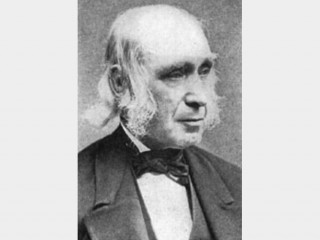
Bronson Alcott biography
Date of birth : 1799-11-29
Date of death : 1888-03-04
Birthplace : Wolcott, Connecticut
Nationality : American
Category : Famous Figures
Last modified : 2010-11-27
Credited as : Educator, visionary,
Amos Bronson Alcott, the most brilliant and visionary American educator of his time, was also the most extreme of the New England transcendentalists.
Bronson Alcott was born near Wolcott, Conn., on Nov. 29, 1799. His was an old New England family which had fallen on hard times, with the result that Alcott received only scanty schooling. However, he educated himself through much of his long life. He early discovered that he wanted to educate others, and he traveled as far away as Virginia to seek a post. Unsuccessful there as elsewhere, he turned to peddling in Virginia and the Carolinas. After his return to New England in 1823, he spent the next decade in a variety of teaching positions and seldom stayed long in any one place.
The school system in the United States at this time was marked by narrowness and rigidity, stressing memorization and discipline. Alcott felt that the basic impulses in the human being were noble ones and that education should consist in freeing the child from restrictions and giving full rein to his imagination. Education should encourage the child mentally, morally, spiritually, esthetically, and physically. For Alcott the body was as important as the mind, so he introduced into his classes such innovations as organized play and gymnastics; he also tried to introduce the study of human physiology. Alcott treated the children as adults through such devices as the honor system, and he led them to discover their personal views through constant use of the Socratic dialogue. But the picture of Alcott gently questioning a 6-year-old about infinity or punishing himself when a child misbehaved was enough to startle any school board, and it is no wonder he became an educational nomad.
If school boards found him shocking, the members of the emerging transcendentalist movement found him admirable though at times exasperating. His philosophy was eclectic. To the Quaker idea of inner vision, he added the idea of intuitive knowledge; he adopted the notion of preexistence; he believed that spirit was the only reality and that man's everyday world was merely an emanation of it; and he permeated this mystic philosophy with a feeling that was close to the ecstatic. He proved to be more Emersonian than even Ralph Waldo Emerson (the leading transcendentalist). The transcendentalists as a group were often accused of being visionary and impractical; Alcott was the personification of those qualities.
His impracticality showed in his family life. Married in 1830, he soon fathered a large family for which he could never provide. Besides school teaching, he attempted a bit of farming, a brief stint in communal living at Fruitlands (a cooperative community which he helped found near Harvard, Mass.), itinerant lecturing in the guise of paid "conversations" in the Socratic mode, and some writing. But it was not till he was an elderly man that his family's financial plight was relieved, when his daughter Louisa May Alcott published Little Women, a best seller.
Alcott's achievement lay in establishing the first "progressive school" in America, in Boston's Masonic Temple. The Record of a School, Exemplifying the General Principles of Spiritual Culture (1835) consists of his observations there as edited by his assistant, Elizabeth Peabody. The school lasted till 1839 despite Alcott's notoriously unorthodox methods. The blow that killed the school was his enrollment of a Negro girl.
In 1859 Alcott's friends got him appointed superintendent of the public schools of Concord, Mass., the native home of transcendentalism. Though he remained as innovative as ever, Concord had become tolerant and allowed him to do a good job. In 1879 he started the Concord Summer School of Philosophy and Literature for adults, which carried on until his death. Besides writing on education, he contributed mystical "Orphic Sayings" to the transcendentalist magazine, the Dial, and published poetry and reflective essays.
Thomas Carlyle caught the flavor of Alcott's unique personality: "The good Alcott; with his long, lean face and figure, with his worn gray temples and mild, radiant eyes; all bent on saving the world by a return to acorns and the golden age; he comes before one like a venerable Don Quixote, whom nobody can laugh at without loving."
There is little current work on Alcott, with the notable exception of The Letters of A. Bronson Alcott, edited by Richard L. Herrnstadt (1969). The only adequate biography is Odell Shepard, Pedlar's Progress: The Life of Bronson Alcott (1937), which corrects and extends the memoir of Alcott by F.B. Sanborn and William T. Harris, A. Bronson Alcott: His Life and Philosophy (1893; repr. 1965). The former can be supplemented by Hubert H. Hoeltje, Sheltering Tree: A Story of the Friendship of Ralph Waldo Emerson and Amos Bronson Alcott (1943). Alcott as an educator is treated in Dorothy McCuskey, Bronson Alcott, Teacher (1940).
Dahlstrand, Frederick C., Amos Bronson Alcott, an intellectual biography, Rutherford N.J.: Fairleigh Dickinson University Press; London: Associated University Presses, 1982.
















